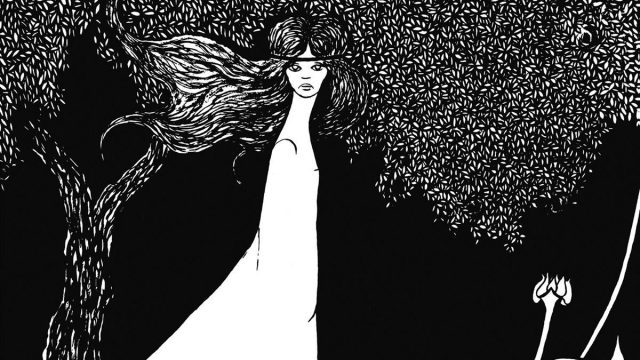Most people only know Procol Harum for their massive international hit “A Whiter Shade of Pale.” Quite possibly one of the greatest songs ever written, the somber song could be about so many things — a bad trip, a love affair gone sour, a drunken evening where the narrator crossed a line with an acquaintance — but it remains eternally relatable because its emotional core is so widely applicable. Singer Gary Brooker’s resignation to his fate, in the shadow of the woman’s face turning that whiter shade of pale, elevates the song beyond other similar songs of the era infused with purple prose.
My introduction to Procol Harum, remarkably, was not “A Whiter Shade of Pale.” It was actually the lead single from their debut self-titled album, “Conquistador,” the tale of a Don Quixote type failing in his quests and eventually passing on, as told by an outside observer. This narrator is looking for some sort of deeper meaning to the conquistador’s existence, but can find nothing but unfulfilled desires and tarnished pride. He admits that his reasons for observing the man were not pure, but his observances fill him with a deep sadness — “though I came to jeer at you/I leave now with regret.” “Conquistador” is one of my favorite songs to this day, a beautiful description of faded glory and the uneasy knowledge that our own lives may end with a meaninglessness (“though I hoped for something to find/I could see no maze to unwind”). The desolation inherent in the song grabbed and intrigued me more than most classic rock of the ’60s did. That mood is a constant throughout Procol Harum, showcasing the band as masters of melancholy.
Every song on Procol Harum, while speaking of emotional turmoil and a swirling kaleidoscopic world, wraps up its narratives in twisting, literary prose that is clearly designed more for evocation and mood than for coherence. The absolutely crushing “A Christmas Camel” purports to describe some sort of shattering crime that ruins the narrator’s life and separates him from his “Amazon six-triggered bride,” but it’s couched in opaque metaphor (something the song itself points out, saying the narrator’s bride “sees the truth quite easily/but shrouds all else in mystery“) and repeatedly ends verses with descriptions of Arabian individuals impersonating inanimate objects. In a similar vein, “Something Followed Me” sees its narrator confronting the inevitability of their own death, seeing their tombstone in multiple mundane scenarios — though there is the possibility of something darker in play, as others are quick to call them insane and their visions of death seem to cause visible cataclysms. Even with these complex and dense lyrics, though, the central worldview of Procol Harum remains consistent. The world is an elegiac and frequently baffling place as seen through their eyes, one that feels paradoxically ancient yet modern.
There is a weird parallelism that runs through the entire album, with songs like the anarchic “Mabel”’s melodic conceits matching up nicely with the more controlled but equally jaunty “Good Captain Clack.” Their jingling ragtime melodies and shout-sung choruses mask the realities of both situations. “Mabel” cannot be the narrator’s lover, because that narrator is definitely some sort of murderer (“Mabel” is the most lyrically audacious song on the album, feeling very much like a vicious fever dream or a sung version of the moment before a disaster), while “Good Captain Clack”’s has met his match (and “must eat his humble pie”), but, scowling, he persists on his path. (All the naked individuals in his orbit are harder to explain.)
“She Wandered Through the Garden Fence” and “Salad Days” also share musical parallels and prominently feature keyboard solos, but take similar subject matter in completely different directions: “She Wandered” describes the narrator being tortured by “a potion guaranteed to bring/relief from all [his] suffering” (all of these songs could reasonably be about bad drug trips), while “Salad Days” describes the contradictory feelings depression brings, particularly where the narrator sees the signs of his own fame. Throughout the whole album, Procol Harum are uneasy with their station in life, and it’s a theme that does not come to an uplifting or easy conclusion — the last song on the album is an ominous instrumental called “Repent Walpurgis,” a reference to the German festival celebrating a saint who was said to repel witchcraft. The Walpurgis Night itself was said to be the night dark magic was at its most powerful, and the song feels very much like an attempt to put a score to a ferocious coven’s meeting. It drives forward, maintaining a strong tempo but still feeling futile and funereal in scope up until its explosive ending.
Procol Harum has often been called one of the progenitors of prog rock, a genre I unfortunately don’t know much about. However, there is a striking modernity to many of their tracks that makes it easy to see how these works inspired those that came after them. Something that drew me to the band was the clarity of their music and how sharp all of it sounds over 50 years later. There’s something to be said for its consistency and willingness to continually confront melancholy and dissolution head-on. All of these songs, with their obscure lyricism, just-long-enough instrumental solos, and undercurrents of darkness, remind me of both other classic artists of their time and of the more modern emo musicians that got me into music in earnest as a teen. Invoking both classical poetic imagery and modern unease to haunting effect has allowed Procol Harum and their music to remain timeless.


